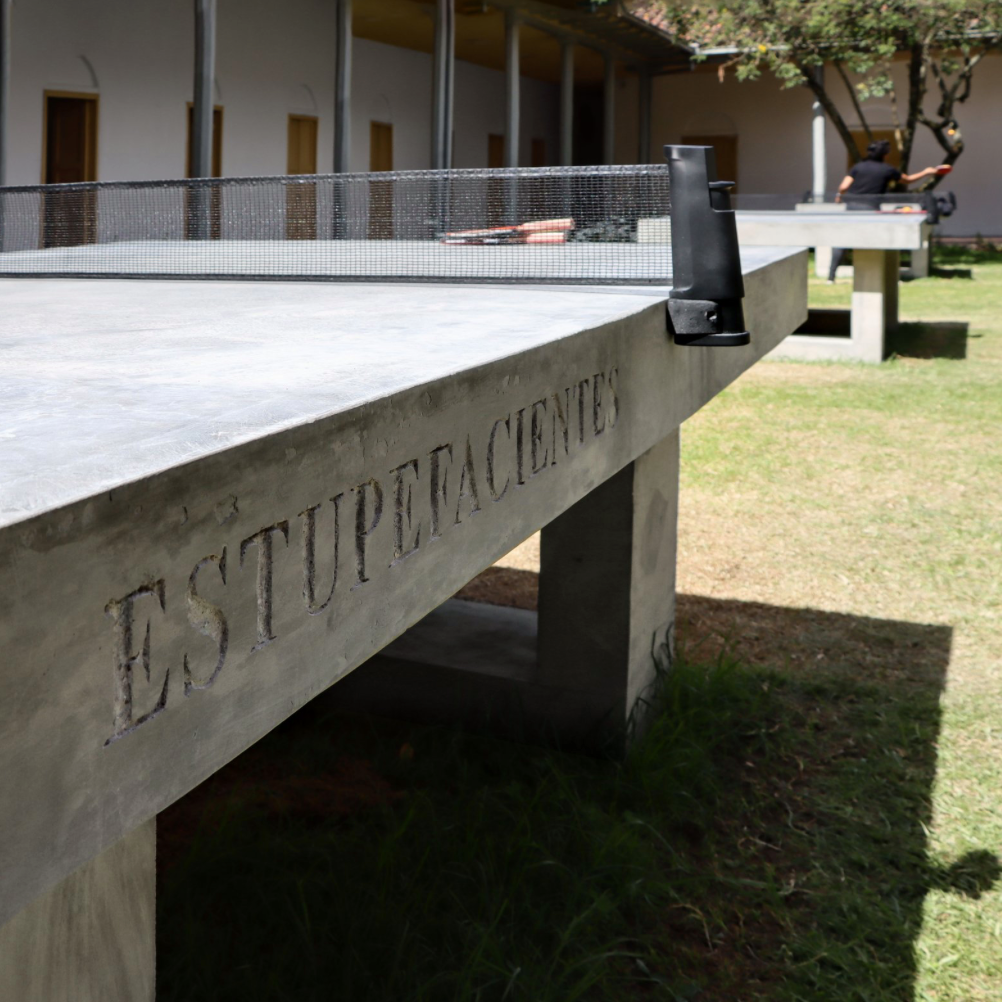Art + Tech Director, Curator, Writer, Publisher
Office address: mm:museum [Media Majlis] @ Northwestern Qatar, Education City, Doha, Qatar
- CuratorWork / CuratorView is an artsphere website

IKT | mm:museum | Northwestern Qatar Navigating New Realities: Curatorial Work and Global Challenges [institutional leadership]
Monday 27 Jan 2025, 2:00 PM – 4:00 PM
Details of Exhibition
The idea for this webinar stems from a recent curatorial experience at the 16th Cuenca Biennial in Ecuador. Through the work of around thirty artists, the Biennial sought to reflect on the political and social realities of Europe and Latin America, defining a landscape that was both political and emotional. The Latin American states were founded on Enlightenment ideals of progress, yet many of the promises of Modernity dissolved over the course of the 20th century. The Biennial was deeply influenced by the region’s major challenges: growing inequalities, the increasing power of drug cartels, the personal and collective toll of migration, and the rise of populism in the face of democratic fragility. The title of the Biennial, Maybe Tomorrow, was a utopian and admittedly naïve optimistic proposal that things can and must improve. However, just weeks after the opening, Ecuador plunged into yet another constitutional crisis, with violence erupting in the streets. Someone wrote, “The artists of the Biennial were already warning us. All of this was possible, not maybe tomorrow but painfully today.”
This webinar will seek to explore how curatorial practices can shed light on these regional and global dynamics, encouraging dialogue and imagination. In a world where hard and soft power continuously battle for dominance, cultural production becomes a battleground in itself, framing narratives that help make sense of complex, often contradictory realities. Today, art has taken on an urgent role in navigating the escalating cultural wars that mark our era, where public and private spheres collide and opposing narratives fiercely contend.
The webinar will delve into the ways in which art can amplify subjective experiences, question institutional structures, and evoke emotional responses that challenge established power dynamics. As authoritarian regimes expand their influence, and as social and political polarizations deepen, the role of the curator becomes more crucial than ever. By highlighting artistic works that provoke, inspire, and challenge, curating has the potential to foster new epistemologies and ethical frameworks for reimagining democracy, justice, and freedom.
Moreover, art, in its capacity to operate on both the sensory and intellectual levels, holds the power to create spaces for critical reflection and envision alternative futures, even when they seem distant or unattainable. This webinar will engage curators, artists, and audiences in a dialogue about how art can not only critique existing power structures but also propose imaginative and bold solutions for a world in urgent need of change.
In the face of growing global crises, curating can serve as a powerful tool for navigating today’s fractured realities, inviting collective reflection on the world as it is—and the world as it could be.
The webinar will address these issues with experiences from three continents:
Fredi Casco, artist and curator, director of the Texo Foundation in Asunción, Paraguay, will provide insights from Latin America.
Kati Kivinen, head of exhibitions at HAM Helsinki and co-curator of the Helsinki Biennial, will discuss European perspectives.
Alima Kairat, artistic director of the Tselinny Center for Contemporary Culture in Almaty, Kazakhstan, will offer a Central Asian viewpoint.
Moderator and organizer:
Ferran Barenblit, museum director and independent curator based in Barcelona, Spain. His last postings were as director of CA2M Centro de Arte Dos de Mayo, Madrid (2008-2015), and MACBA, the Museum of Contemporary Art in Barcelona (2015-2021). His recent curatorial projects include Fictions: Narrativity in Contemporary Art (Museo de Arte Zapopan, Guadalajara, 2024); Max de Esteban: Dies Irae (Muntref, Buenos Aires, 2024); the 16th Cuenca Biennale, Ecuador (2023); Ben Vautier: Death Does Not Exist (MUAC, Mexico City, 2022); and Action: A Provisional History of the Nineties (MACBA, 2021).
Image: Teresa Margolles, El poder (The Power), 2023, concrete mixed with narcotics, 3 tables of 274 x 152 x 76 cm, 16th Cuenca Biennale Ecuador